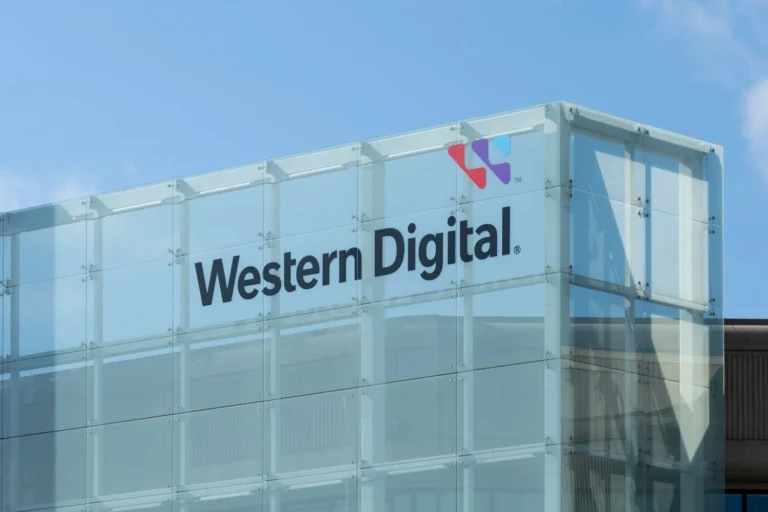Is Google Burying Affiliate Marketing?: Are you an affiliate marketer who relies on Google for traffic and conversions? If so, you may have noticed a shift in the digital landscape. Google’s ever-evolving algorithm updates can feel like a rollercoaster ride, impacting search rankings and leaving many affiliate marketers questioning their strategies. In this blog post, we’ll explore whether Google is burying affiliate marketing or if there are ways to adapt and thrive in this new era. So buckle up and let’s dive into the world of affiliate marketing in the age of Google’s algorithm changes!
Table of Contents
The Rise of Affiliate Marketing
Affiliate marketing has experienced a meteoric rise in recent years, becoming a lucrative industry for both marketers and brands. This type of performance-based marketing allows individuals or businesses to earn commissions by promoting other people’s products or services.
What makes affiliate marketing so appealing is its flexibility and scalability. Anyone with an internet connection can become an affiliate marketer, regardless of their background or experience. All you need is the ability to drive traffic and convert leads into sales.
The concept behind affiliate marketing is simple yet powerful. Affiliates create unique tracking links that they share through various channels such as websites, blogs, social media platforms, or email lists. When someone clicks on these links and makes a purchase, the affiliate earns a commission.
This win-win situation benefits both affiliates and companies alike. Affiliates have the opportunity to generate passive income while companies can expand their reach without investing heavily in traditional advertising methods. It’s no wonder that more individuals are turning to affiliate marketing as a viable income stream.
As technology continues to advance and consumers increasingly rely on online shopping, the future looks bright for this industry. Affiliate marketing thrives on innovation – new tools and platforms emerge regularly to cater to its growing demands.
So how does Google fit into all of this? Let’s explore how recent algorithm changes may be impacting the world of affiliate marketing next!
Google’s Algorithm Update: What it Means for Affiliates
In the ever-evolving landscape of online marketing, staying on top of Google’s algorithm changes is crucial for affiliate marketers. These updates can have a significant impact on search engine rankings and ultimately affect the visibility and success of affiliate websites.
One key aspect of Google’s algorithm update is its increasing emphasis on user experience. The search giant wants to ensure that users are presented with high-quality, relevant content that meets their needs. This means that affiliates need to focus not only on promoting products or services but also creating valuable and engaging content that adds value to the user.
Furthermore, Google has become increasingly adept at detecting low-quality or spammy affiliate sites. With each new update, the algorithms are becoming more sophisticated in filtering out sites that rely solely on thin content or manipulative tactics to drive traffic and sales.
To survive in this changing landscape, affiliate marketers must adapt their strategies accordingly. Building a strong brand presence through social media platforms can be one effective approach. By establishing credibility and authority within their niche, affiliates can attract organic traffic and develop a loyal following.
Additionally, diversifying revenue streams beyond traditional affiliate links can help mitigate any adverse effects from algorithm updates. Exploring other monetization methods like sponsored posts, partnerships with brands directly, or even creating digital products can provide alternative income sources while reducing reliance on organic search traffic alone.
The future of affiliate marketing lies in providing genuine value to users while adhering to best practices set by search engines like Google. By continually optimizing website performance, delivering quality content consistently, and focusing on building relationships with both customers and industry peers alike, affiliates will remain relevant despite ongoing algorithm changes.
While it may seem daunting at times when faced with constant updates from Google’s algorithms; it also presents an opportunity for growth and innovation within the field of affiliate marketing.
The Impact on Affiliate Marketers and Businesses
The impact of Google’s algorithm changes on affiliate marketers and businesses has been significant. With the search engine giant favoring high-quality content and user experience, many traditional affiliate marketing strategies have taken a hit.
Affiliate marketers who relied heavily on thin or low-quality content are now forced to adapt their approach. They must focus on creating valuable and informative content that adds real value to the users’ experience. This means understanding their target audience and providing them with relevant information, product reviews, comparisons, and helpful tips.
Businesses that depend on affiliate marketing also need to reassess their strategies. Instead of simply relying on affiliates to drive traffic and sales, they should aim for a more diversified digital marketing approach. This may involve investing in other channels such as social media advertising, influencer partnerships, or even developing their own unique products or services.
Furthermore, businesses need to establish stronger relationships with reputable affiliates who can provide genuine value to their customers. Quality over quantity becomes crucial when selecting partners in this new landscape.
While Google’s algorithm update presents challenges for affiliate marketers and businesses alike, it also offers an opportunity for growth by pushing them towards higher standards of quality and relevance. By adapting to these changes proactively and embracing new approaches in digital marketing, both affiliates and businesses can thrive in the age of Google’s algorithm updates.
Strategies for Surviving in the Age of Google’s Algorithm Changes
Adapting to Google’s ever-changing algorithms is crucial for affiliate marketers looking to thrive in today’s digital landscape. Here are some strategies that can help you navigate through these changes and stay ahead:
- Diversify your traffic sources: Relying solely on organic search traffic from Google is risky. Explore other channels such as social media, email marketing, and paid advertising to ensure a steady flow of visitors.
- Focus on quality content: Creating valuable and engaging content should be at the core of your strategy. By providing useful information, answering common questions, and addressing pain points, you can attract both readers and search engines.
- Build strong relationships with affiliates: Collaborating with reputable affiliates can boost your visibility and credibility online. Network within your niche, forge partnerships, and leverage each other’s expertise to create mutually beneficial campaigns.
- Optimize for user experience: User-centric optimization has become increasingly important in SEO. Ensure that your website is mobile-friendly, loads quickly, has intuitive navigation, and offers a seamless browsing experience.
- Adapt to new technologies: Stay updated on emerging technologies like voice search or artificial intelligence (AI). Incorporate these advancements into your marketing strategies to reach broader audiences effectively.
Remember that surviving algorithm changes requires continuous adaptation and experimentation while staying true to ethical practices in affiliate marketing.
The Future of Affiliate Marketing
The future of affiliate marketing holds great potential as the digital landscape continues to evolve. With advancements in technology and changes in consumer behavior, affiliate marketers are presented with new opportunities to reach their target audience.
One key trend that is expected to shape the future of affiliate marketing is the rise of mobile devices. As more people rely on smartphones and tablets for their online activities, it becomes crucial for affiliates to optimize their campaigns for mobile users. This includes creating mobile-friendly websites, using responsive design, and implementing mobile-specific strategies.
Another important aspect of the future of affiliate marketing is the integration of artificial intelligence (AI) into campaign management. AI can help streamline processes such as tracking conversions, analyzing data, and optimizing campaigns based on user behavior patterns. By leveraging AI technologies, affiliates can gain valuable insights and make data-driven decisions to improve their performance.
Furthermore, influencers are becoming a significant force in affiliate marketing. Brands are increasingly collaborating with social media influencers who have large followings and influence over their audiences’ purchasing decisions. This partnership allows affiliates to tap into a highly engaged audience base and drive more targeted traffic to their offers.
Additionally, personalization will play a crucial role in the future of affiliate marketing. With access to vast amounts of customer data, affiliates can create personalized experiences tailored to individual preferences and interests. By delivering relevant content and offers based on user behavior or demographic information, affiliates can increase conversion rates significantly.
Lastly but not leastly , voice search is emerging as another game-changer in the world of digital marketing including Affiliate Marketing . As voice assistants like Siri or Alexa become more popular , optimizing content for voice search queries will be essential . Affiliates should focus on incorporating long-tail keywords that align with natural language patterns used during voice searches .
In conclusion , there’s no denying that the future looks bright for those involved in affiliate marketing . However , staying ahead requires adaptability , innovation ,and staying up-to-date with industry trends and technological advancements . By embracing emerging trends like mobile optimization , AI integration , influ
Conclusion : Is Google Burying Affiliate Marketing?
In the ever-evolving world of digital marketing, it’s essential for affiliate marketers to stay ahead of the game. With Google constantly updating its algorithm to provide users with the best possible search results, some affiliates may feel that their efforts are being buried or overshadowed. However, it is important not to jump to conclusions and assume that Google is intentionally burying affiliate marketing.
While it is true that certain algorithm updates have had an impact on affiliate marketers, this doesn’t mean that affiliate marketing as a whole is doomed. It simply means that affiliates need to adapt their strategies in order to continue thriving in this changing landscape.
One key strategy for surviving in the age of Google’s algorithm changes is diversification. Instead of relying solely on organic search traffic from Google, consider exploring other avenues such as social media platforms or email marketing campaigns. By diversifying your traffic sources, you can mitigate the risk associated with any potential changes in Google’s algorithms.
Additionally, focusing on creating high-quality content and providing value to your audience will always be crucial. Building trust and establishing yourself as an authority within your niche can help you attract loyal followers who are more likely to convert into customers.
Furthermore, building relationships with reputable brands and businesses can also contribute positively towards your success as an affiliate marketer. By partnering with trusted companies and promoting products or services that align with your audience’s interests and needs, you can enhance your credibility while generating revenue through commissions.
As for the future of affiliate marketing amidst ongoing changes by Google? It remains bright! While there may be challenges along the way, successful affiliates who adapt their strategies accordingly will continue to thrive despite any algorithm updates thrown their way.
In conclusion (Oops!), rather than viewing these changes as obstacles or signs of burial by Google, let us embrace them as opportunities for growth and evolution within our industry. As long as we remain innovative, adaptable,and focused on delivering value to our audience, affiliate marketing will continue to be a valuable and lucrative avenue







